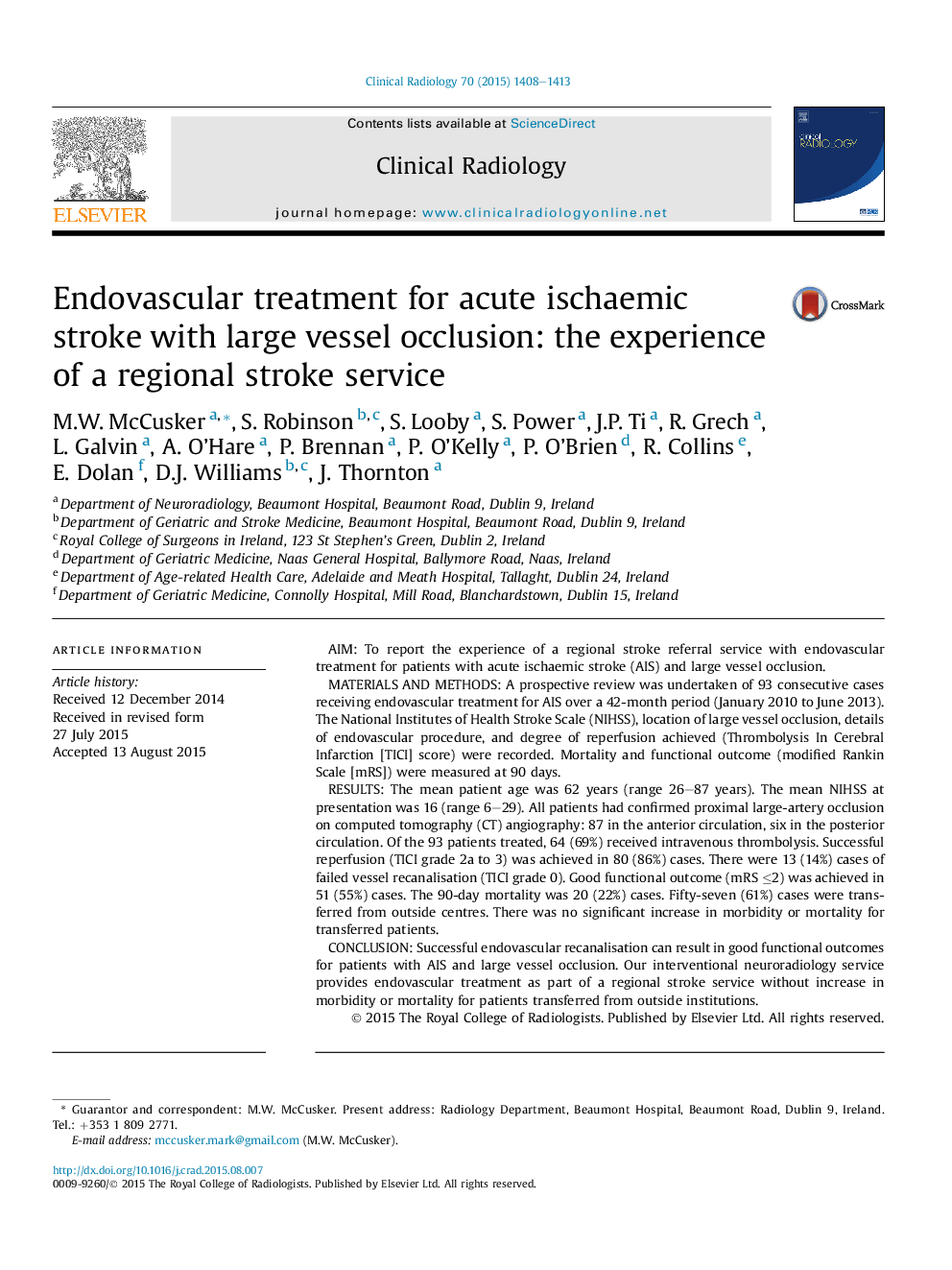| Article ID | Journal | Published Year | Pages | File Type |
|---|---|---|---|---|
| 3981360 | Clinical Radiology | 2015 | 6 Pages |
•Acute stoke patients may benefit from transfer to a specialist centre for endovascular treatment.•The authors offer endovascular treatment for suitable patients as part of a regional stroke service.•This study compares outcomes for patients transferred to the authors' centre to those who patients who present directly.•The outcomes are comparable to other large published series on endovascular treatment of stroke.•The study demonstrates no increase in morbidity or mortality for patients transferred from outside institutions.
AimTo report the experience of a regional stroke referral service with endovascular treatment for patients with acute ischaemic stroke (AIS) and large vessel occlusion.Materials and methodsA prospective review was undertaken of 93 consecutive cases receiving endovascular treatment for AIS over a 42-month period (January 2010 to June 2013). The National Institutes of Health Stroke Scale (NIHSS), location of large vessel occlusion, details of endovascular procedure, and degree of reperfusion achieved (Thrombolysis In Cerebral Infarction [TICI] score) were recorded. Mortality and functional outcome (modified Rankin Scale [mRS]) were measured at 90 days.ResultsThe mean patient age was 62 years (range 26–87 years). The mean NIHSS at presentation was 16 (range 6–29). All patients had confirmed proximal large-artery occlusion on computed tomography (CT) angiography: 87 in the anterior circulation, six in the posterior circulation. Of the 93 patients treated, 64 (69%) received intravenous thrombolysis. Successful reperfusion (TICI grade 2a to 3) was achieved in 80 (86%) cases. There were 13 (14%) cases of failed vessel recanalisation (TICI grade 0). Good functional outcome (mRS ≤2) was achieved in 51 (55%) cases. The 90-day mortality was 20 (22%) cases. Fifty-seven (61%) cases were transferred from outside centres. There was no significant increase in morbidity or mortality for transferred patients.ConclusionSuccessful endovascular recanalisation can result in good functional outcomes for patients with AIS and large vessel occlusion. Our interventional neuroradiology service provides endovascular treatment as part of a regional stroke service without increase in morbidity or mortality for patients transferred from outside institutions.
